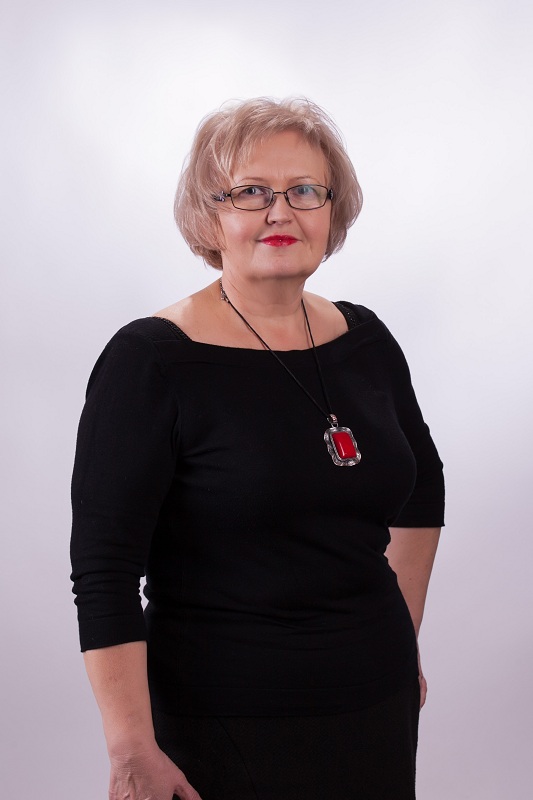Degree: Doctor of Science (PhD) in Educational Sciences
Duration and fee of studies:
- full-time studies: 3 years
- EU/EEA/Swiss citizens: 3950 EUR / year
- Other country citizens: 6690 EUR / year
Language of instruction: English
Amount of credits: 144 credit points or 216 ECTS

The programme has been implemented in collaboration with the University of Latvia, Liepaja University, and Daugavpils University.
The aim of the study programme is to improve the doctoral student's research and academic competence in educational sciences for independent and innovative research activities, improvement and elaboration of educational sciences, improvement of pedagogical practice at various levels of education (from pre-school to adult education) in Latvia and internationally, independently developing and publicly defending doctoral research that contains the results of original scientific research and provides new knowledge in educational sciences.
The content of the study programme includes openness to new ideas, understanding global and local, socio-political, economic and educational processes, envisaging the development of professional competencies for creative self-experience and activities in various social environments, using communication technologies and resources. It orients students to research and innovation in educational sciences.
Results of the study programme
The results of the study programme are formulated in accordance with the European Qualifications Framework, the Latvian Qualifications Framework, and the European Higher Education Area Qualifications Framework.
- Understands the historical experience and current trends in the development of educational sciences and their context in Latvia, Europe, and the world.
- Understands the scientific theories and knowledge of current education sciences and the context of their formation.
- Understands theoretical and empirical research methods and methodologies in the field of educational sciences and in contact with other fields of science, interdisciplinary approach in research.
- Understands the role of a researcher in the field of educational sciences in the development of society, in solving educational problems in the context of comparative education policy.
- Systematically analyses and interprets the binding concepts, theories, and topicalities of educational policy in educational sciences.
- Independently evaluates and reasonably chooses methods appropriate for scientific research in educational sciences.
- Independently uses theories of educational contact sciences, research methods to carry out research activities in the field of education in an international comparative context.
- Independently formulates and critically analyses research problems at different levels of education.
- Identifies potential connections between the theoretical aspects of educational sciences and their implications for educational policy, pedagogical practice in the local and international context.
- Solves current problems in research and practice of educational sciences in order to expand and give new understanding to the existing knowledge and offer research-based solutions for the improvement of professional practice.
- Communicates and discusses orally and in writing about the field of educational sciences, the results of research conducted in it with the wider scientific community and society in general in Latvia and in the international environment.
- Makes scientifically based decisions in the solution of educational problems and argues his/her opinion.
- Leads and/or coordinates multidisciplinary study teams and/or works and collaborates in an international context.
- Offers innovative solutions and perspective views on the future development of various aspects of education.
- Encourages and implements research-based change in his/her educational institution, the educational sector, and, as far as possible, in society as a whole.
- Performs independent, critical analysis and evaluation of current, complex research problems in the field of educational sciences, contributing to the expansion and deepening of knowledge in the field of educational sciences.
- Independently, justifiably puts forward innovative research ideas, critically evaluates and synthesizes them in educational sciences and in an interdisciplinary context.
- Independently and responsibly plans, structures, and manages scientific projects, including international ones.
- Independently, responsibly, and critically conducts important scientific researches in educational science, promotes the introduction of innovations in pedagogical practice.
- Publishes the results of his/her research in internationally recognized publications, including internationally cited publications in Latvia and abroad.
- Solves important research and innovation-promoting tasks in educational sciences, taking into consideration the ethical responsibility for the possible impact of educational sciences on the relationship between education and society, on the initiation and management of change in education and society.
- Responsibly promotes technological, social and cultural development in the knowledge society in the context of the development of scientific and academic activities.
- Conducts scientific work and communicates with colleagues, the scientific community, and the general public in their field of expertise.
Opportunities for graduates
Acquisition of the study programme provides in-depth knowledge and critical understanding of the national characteristics of education, socio-cultural aspects of society and development trends in the common European educational space.

Admission requirements
1. Master`s degree in Pedagogy, Psychology, Educational management or Humanitarian Sciences, Social Science, Social welfare and social assistance if professional experience in education at least 3 years.
Discussion of the theme or problem in pedagogy, on which research has been made in the submitted paper, is required.
2. English language proficiency (level B2)
To be submitted: A document certifying language proficiency issued by an international testing institution within the past five years, which certifies the foreigner’s proficiency in English at least at the level B2, except if previous education has been acquired in English.
3. Online interview.
More information and Study plan
Autumn intake
- Application until 1 July 2024
- Studies start in September 2024